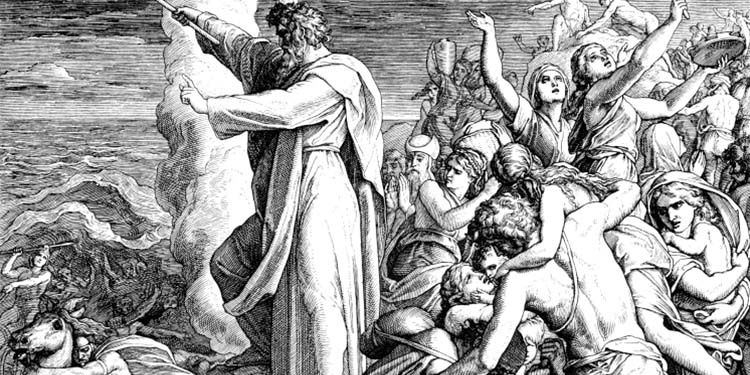There Is No Other
The Fellowship | April 23, 2019

As we recount the Exodus story this Passover, I want to point out a seemingly minor detail. In Exodus 13:17, Scripture tells us that “God did not lead them on the road through the Philistine country, though that was shorter. For God said, ‘If they face war, they might change their minds and return to Egypt.'” You see, God could have led the Israelites on a shorter route to the Promised Land, but in His infinite wisdom, He could see that the Israelites weren’t ready for battle just yet, and so He took them another way.
You were shown these things so that you might know that the LORD is God; besides him there is no other. — Deuteronomy 4:35
For more reflections on Passover, please download our complimentary Passover Devotional Guide.
The next verse in the Exodus story reveals, “So God led the people around by the desert road toward the Red Sea” (Exodus 13:18). The Jewish sages ask: Is this any better? We know how the story unfolds. The children of Israel ended up in a battle of sorts anyway. Just days after freeing the Israelites, Pharaoh changed his mind. The Egyptians pursued the Israelites, who then found themselves trapped between the Egyptians and the sea. How was this the better way?
The answer can be found in the book of Deuteronomy, where Scripture teaches us: “You were shown these things so that you might know that the LORD is God; besides him there is no other.” These words are so powerful that they have become one of Judaism’s most well-known songs.
God intentionally placed the Israelites in a situation where they had no choice but to depend completely on a supernatural miracle from Him. God wanted to show the Israelites in an obvious way that He is the Master of all Creation. There is nothing but God — in the world, running the world, and when necessary, breaking the rules of nature that He Himself made.
Later on, after much practice of faith, the Israelites would be able to face their enemies without supernatural intervention. They would be able to see God when He wasn’t so obviously present and would have the faith necessary to defeat their enemies. But at that time, God had a lesson to teach: “Ein od milvado,” translated in the Jewish Bible as “there is nothing but Him.”
We, too, need to take these words into our hearts and into our lives. When we find ourselves in a difficult situation, remember the Exodus story, that “There is nothing but God.” He will help you through it. When someone insults you, remember, “There is nothing but God.” He is trying to teach you something through that person. When you or a loved one falls ill, remind yourself, “There is nothing but God.” He can heal anyone.
Whenever a solution to our problem seems impossible, remember this Exodus story and think “There is nothing but God.” He parted the sea for Israel, and He can do the impossible for us, too.
For more reflections on Passover, please download our complimentary Passover Devotional Guide.
